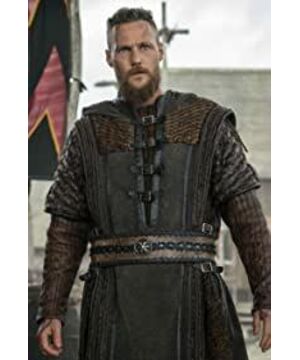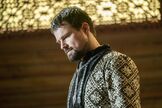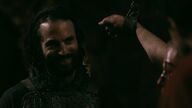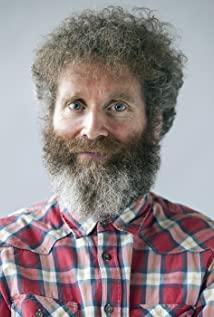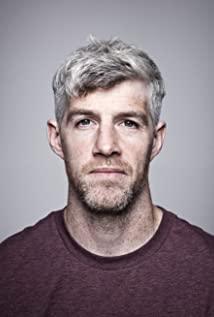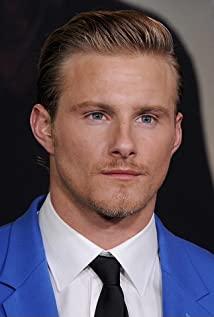Saw episode 10 of season 6. At first I thought it was a historical drama about how the Viking pirates changed the historical process of various countries through sea adventures. Later, I found that most of them were describing the civil war of the Vikings. Even Wessex and Frank clicked on it. Without feeling, the show is coming to an end. This shows that the writers did not intend to tell an exciting history of world conquest. So what does it want to express? After seeing it, I slowly saw it clearly: the entire drama of "The Legend of Vikings" revolves around a core question: Is fate destined by God (specifically, God), or can it be controlled by ourselves?
Around this issue, we are divided into two camps to continue the in-depth torture:
A If destiny is ordained by God , then:
1. Who is the real hand behind - i.e. there is only one true god, or are there several gods at the same time? How should we choose?
2. What is the purpose of God? (Teasing us, or playing a big game?)
3. How should we understand and obey God's arrangement? What does this ultimately mean to us?
B. If destiny is ours to control, how should we control it?
Regarding the above issues, the play has carried out different explorations through different representative characters.
In faction A:
1. Lagossa - A stalwart without distractions. She never doubted that fate was determined by the gods, and she didn't need to ask what the meaning of obeying the gods was. It would be good to finally be able to enter the Hall of Valor. Even after getting pregnant again, because he learned from the prophet that he would not have a child, he did not cherish his body "as he wished" to have an abortion, and never attempted to change or complain about the injustice of his fate. In the end, her death also proved that her faith did not deceive her.
However, the question is: from the point of view of Lagossa's character, this is not a passive obedience, but an active choice, choosing to stay true to her beliefs and principles forever - from this point of view, is it not her own destiny result of selection?
But if you want to write an epitaph for her, you should be able to write: "Respect fate, and fate will respect you in her way."
2. Rollo - the lucky guy who flips through his parents' drawers
Rollo also never doubted that fate was determined by the gods, but unlike Lagossa, he lacked true reverence for God (otherwise he would not have been baptized in Christ as a joke). Just like for a child, what matters is whether there is still sugar in the parent's drawer, other issues don't need to be thought about. Finally, the gods finally noticed the simple child who was crying and asking for candy, and gave him a hint, so he had the look in his eyes when he stepped onto the city gate and saw Princess Frank: "Dad didn't lie to me, it's him Candy for me?" His love for the princess, I think, was largely due to his belief that it was a gift from fate that must be cherished.
If I were Rollo, I would wonder why Odin gave me a condition of being a Christian, isn't that a contradiction.? Forget it, maybe the gods also like children who are simple-minded but quick-witted.
The epitaph can be written: "Don't ask what destiny is, ask what destiny has prepared for you".
3. Floki - The Fate-Taunted Flatterer
Not only did Floki not doubt the gods, but he simply flattered the gods. As for the meaning, he probably vaguely believed that he had some kind of divinity in him, hoping to be accepted by the gods through flattery (many details can be seen that he has a certain kind of godliness). sex, much like Floki, the devious god of cunning). However, he was repeatedly tricked by fate. Later, he chose to drift on the sea completely passively, to see how the gods responded to his piety, but he was even more tricked. From him, you can see a phenomenon often mentioned in psychology: the more you please, the more humble you are.
Epitaph: "The more you please, the more humble you are, and the same is true for fate."
4. Eisenstein and Hedmond - Brave inside and brave outside. Both of them chose to obey their beliefs, but Estherstein finally made a choice after experiencing contradictions and practice. He seemed cowardly, but he always faced his doubts honestly and tried to test the authenticity. This is indeed true. It takes extraordinary courage, which is why both great men love him; and Hedmund, who has always been loyal to God only, has finally escaped his love for the pagan Lagatha.
It's just that Estheran's skeptical spirit is reflected in the first question ". Who is the real hand behind - that is, there is only one true god, or are there several gods at the same time? How should we choose?", without denying The existence of God and destiny.
Esselstein's epitaph: "Always be honest with yourself"
Headstone Epitaph: "The Honest Part Is Not All Right"
5. Vesek - The Watcher of Destiny. In fact, Vesek was not from the A camp before. From the moment he jumped off the boat, he has been wondering whether it was his own decision or fate. He tried to grasp all the signals to make judgments, and even almost believed in Buddhism. He collapsed for a while, until he accidentally killed the enemy who killed his mother. He finally believed that fate had a plan for him, but he didn't know what the final plan was for the time being ( 10 more episodes left)
Epitaph: "You are the most hidden piece in the chess of destiny, lie down and wait, don't ask about the finale in advance". (Bishop Headmont also considers himself part of a bigger game)
B camp:
1. Ragnar, Egbert the Old King of Wessex: The first generation of Destiny Testers.
The scene of Ragnar's death is very meaningful. He obviously accepted the baptism of Christ voluntarily, but died in the way of a Viking, shouting revenge and Valhalla, and the dialogue with Albert shows that he has no heart in his heart. There is no meaning to either Valhalla or Heaven.
In this regard, I understand that at the last moment, he just kept his curiosity, and wanted to see if he could fool the gods to sit in the Hall of Valor; being baptized did not really believe in Christianity, but reserved a visit to heaven. , the possibility of a reunion with Esselstein; or, either, or neither. Either way, he controlled his fate after death through his own scheming.
In the end, Egbert didn't seem to want these after-death worlds anymore, so he would dig a hole for his opponents in the real world, take a bath and enjoy it.
Their epitaph should be very simple: "I will decide my fate"
2. Ivar the Boneless - the second generation of fate manipulators: Ivar understood the core spirit of his father - "man must master his own destiny", but compared to his father's cautious approach, his trial method was to declare himself a god ---Become a god, you can justifiably control your own destiny. But this is a bit self-deceiving, isn't it God, can't control his own destiny?
Epitaph: Let’s talk about the final season first. After all, he is a legendary figure in history, and he has begun to understand that he is not a god. Let’s see what changes can be made.
3. Judith - the one who defies fate.
If the greatest female warriors in Viking legends are, I think it is Lagossa and Judith, these two represent external courage and internal courage. She is more courageous than Ragnar, Egbert, Hedmond, and Ivar: she does not use the name of any god to make excuses for her behavior during her lifetime, and she will never attempt to pray to God after death. Forgive or deceive God. .
Epitaph : "Fate, what you want has nothing to do with me."
Others, such as Bjorn, Uber, etc., are only the successors of some of the spirits and ideals of their predecessors, and they are not representative from the perspective of thinking about fate, so I will not repeat them one by one.
Therefore, the entire "Viking Legends" indeed reflects the spirit of adventure of the Vikings, but on the surface it is an external exploration and conquest. , the inward spiritual exploration of the meaning of human existence in two generations (mainly Vikings) is the core. From the arrangement of the shots, you can also see that the director deliberately compared similar or opposite situations, which I personally think has more depth than "Game of Thrones". It is that the later stage is too procrastinated, and the screenwriter wants to express too much content, which leads to some inexplicable characters and plots, and there is no satisfactory answer in the end. If it has to be, it is this: there is no right or wrong, it is the choice that matters. .
View more about New Beginnings reviews


